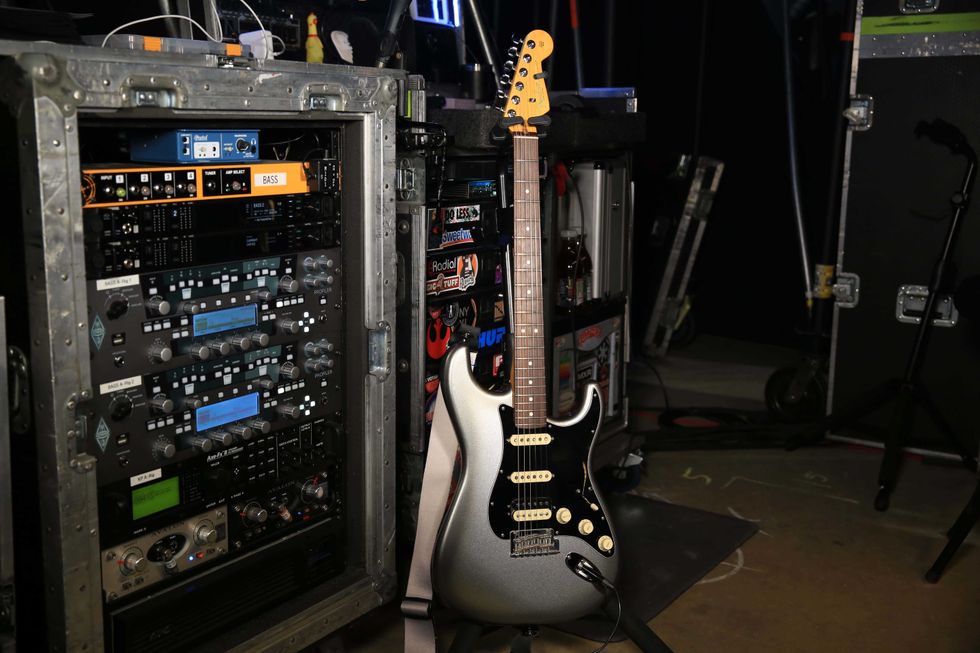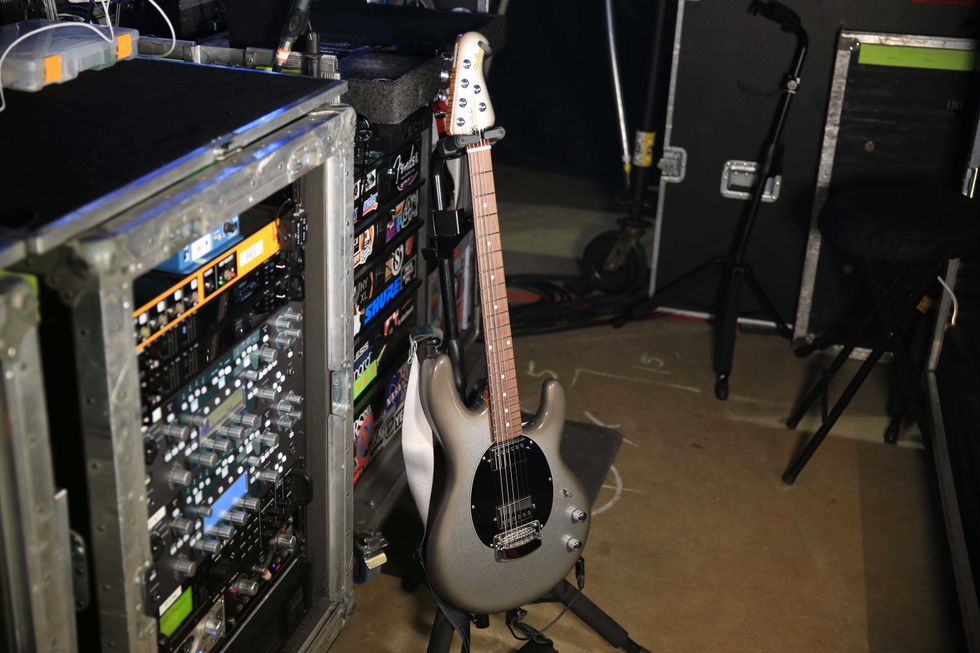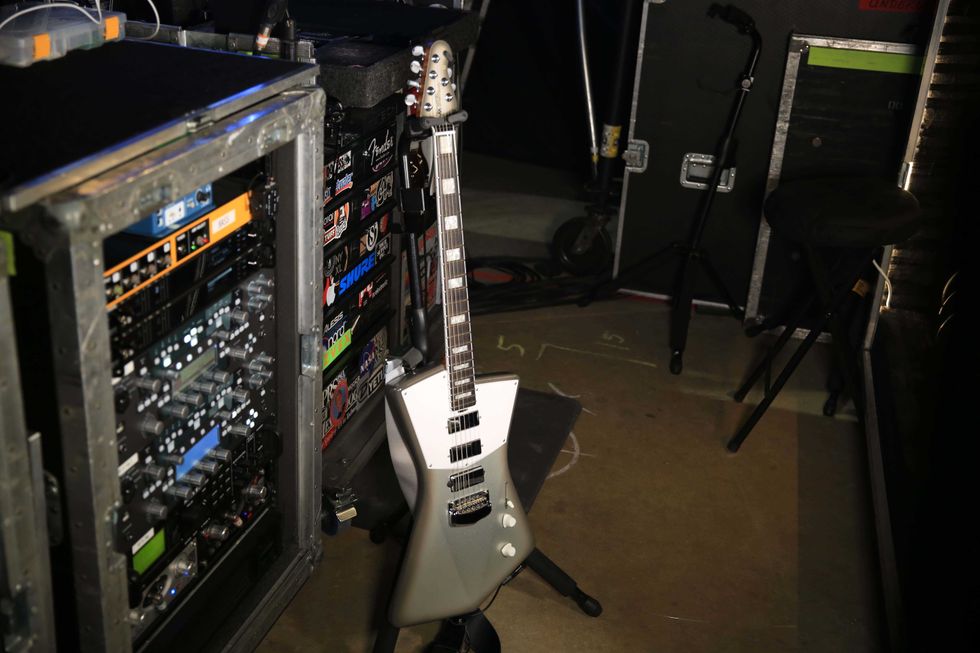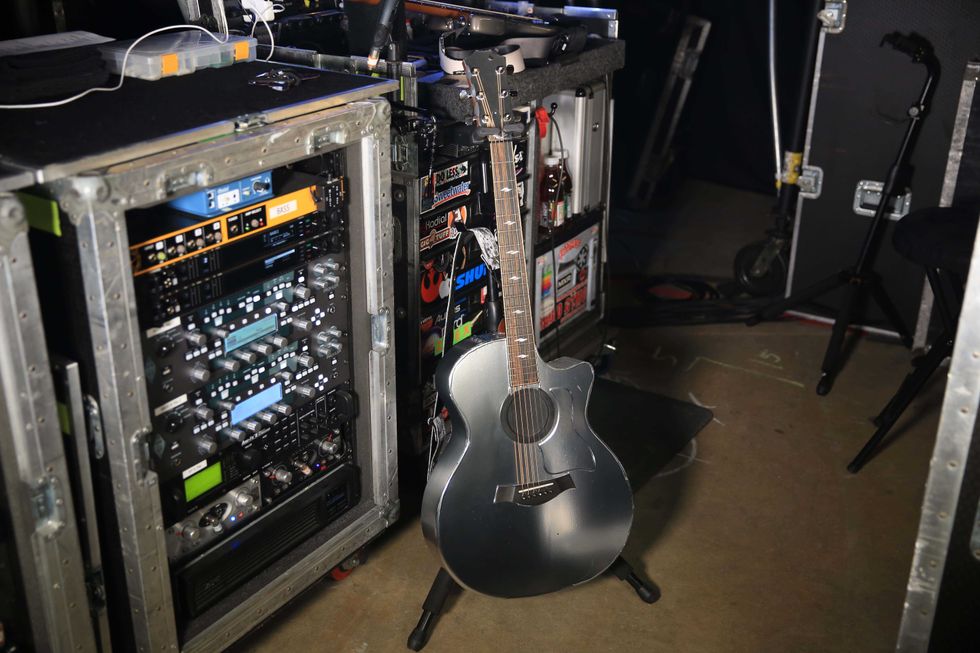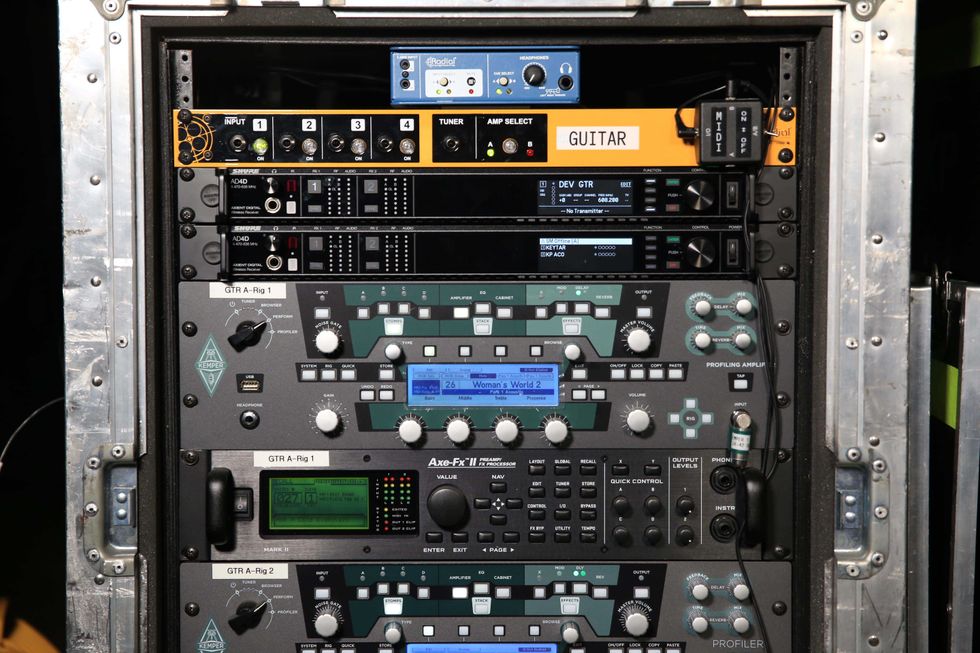Ariel Posen entered as a sideman. His scintillating work with the Bros. Landreth made him a guitarist’s guitarist. He’s since stepped out on his own to show he’s more than just shadowy specialist.
His 2019 solo debut, How Long, caught some fans off guard and shined brightly because of his song-first approach. “These days, I like listening to songs and the story and the total package,” Posen told PG in 2019. “I just trusted my gut and I can reach more people by playing songs, and I get moved more by a story and lyrics and harmony, so that’s where I naturally go. The live show is a lot more guitar-centric.”
But saying all that, Posen still gets down on the guitar. His slide might do most the talking (look no further than How Long’s sizzling “Get You Back”), but his fingerstyle flourishes and potent phrasing make him an all-around threat. And on top of all that, the dude can sing, too!
His brand-new album Headway expands on the success of How Long by incorporating more rootsy Americana vibes (“Heart by Heart” or “Carry Me Home”) and slinky neo-soul touches (“What Are We Doing Here”). And guitarists, don’t worry, he still cuts a grooving, silky solo (“Coming Back” or “Heart by Heart”).
Just before releasing his emotive, heartfelt 12-song collection, the burgeoning-songwriting guitarist virtually welcomed PG’s Chris Kies into his Canadian-home jam space.
In this episode, we find out how a $50-pawnhsop purchase inspired his No. 1—a custom-made, S-style baritone—and he explains why all of his guitars (and their tones) have to be “different,” and he goes through his travel-ready pedalboard that’s been grounded for over a year, but has still been a big asset for recording.
D'Addario XPND Pedalboard: https://www.daddario.com/XPNDRR
[Facing a mandatory shelter-in-place ordinance to limit the spread of COVID-19, PG enacted a hybrid approach to filming and producing Rig Rundowns. This is the 43rd video in that format.]
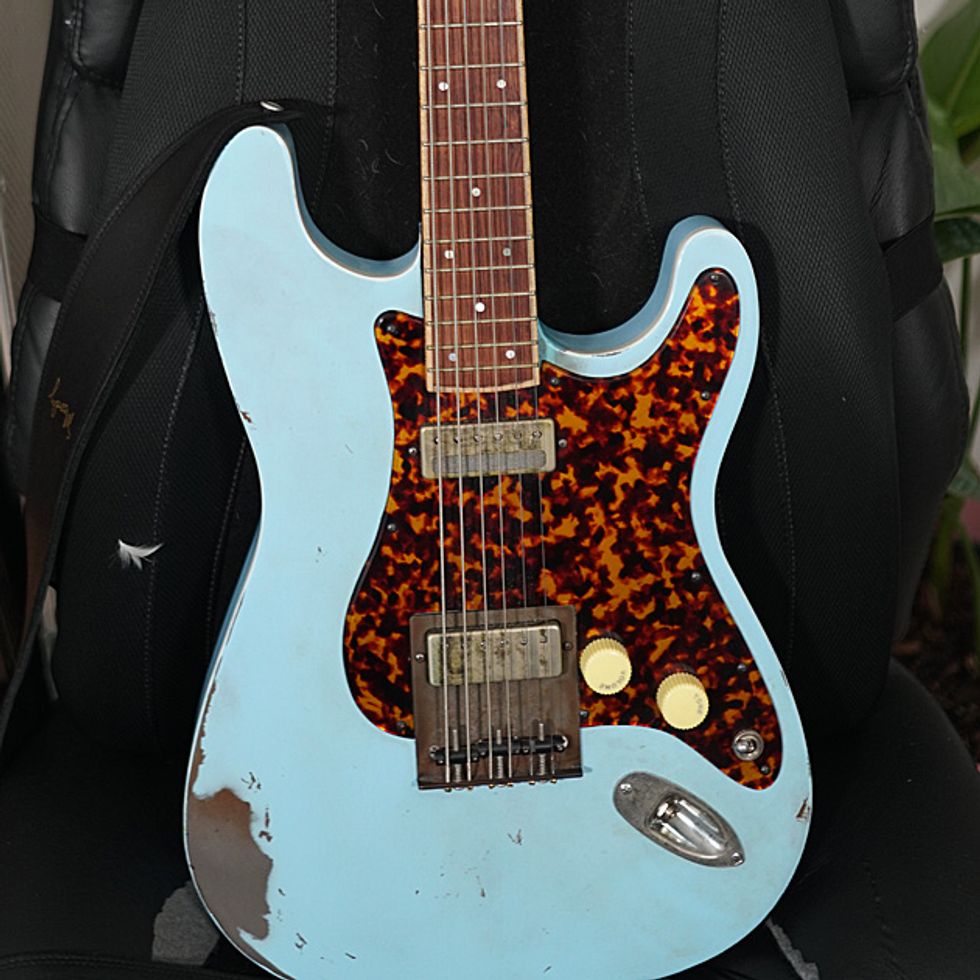
If you’ve spent any time with Ariel Posen’s first solo record, How Long, an auditory high mark might be the ripping, raunchy slide solo packed within “Get You Back.” As explained in a 2019 PG interview, Posen’s pairing for that song were two cheapos—a $50 Teisco Del Ray into a Kay combo. However, when he took the pawnshop prize onstage, the magic was gone. “It wouldn’t stay in tune and wouldn’t stop feeding back—it was unbearable [laughs].”
Posen was familiar with Matt Eich of Mule Resophonic—who specializes in building metal-body resonators—so he approached the luthier to construct him a steel-bodied, Strat-style baritone. Eich was reluctant at first (he typically builds roundneck-resos and T-style-baritones), but after seeing a clip of Posen playing live the partnership was started.
The above steel-bodied Strat-style is Posen’s second custom 25"-scale baritone. (On Mule Resophonic’s website, it’s affectionately named the “Posencaster.”) The gold-foil-y pickups are handwound by luthier Matt Eich and are actually mini-humbuckers. He employs a custom Stringjoy set (.017–.064 with a wound G) and typically tunes to B standard. The massive strings allow the shorter-scale baritone to maintain a regular-tension feel. And when he gigs, he tours light (usually two guitars) and so he’ll use a capo to morph into D or E standard.
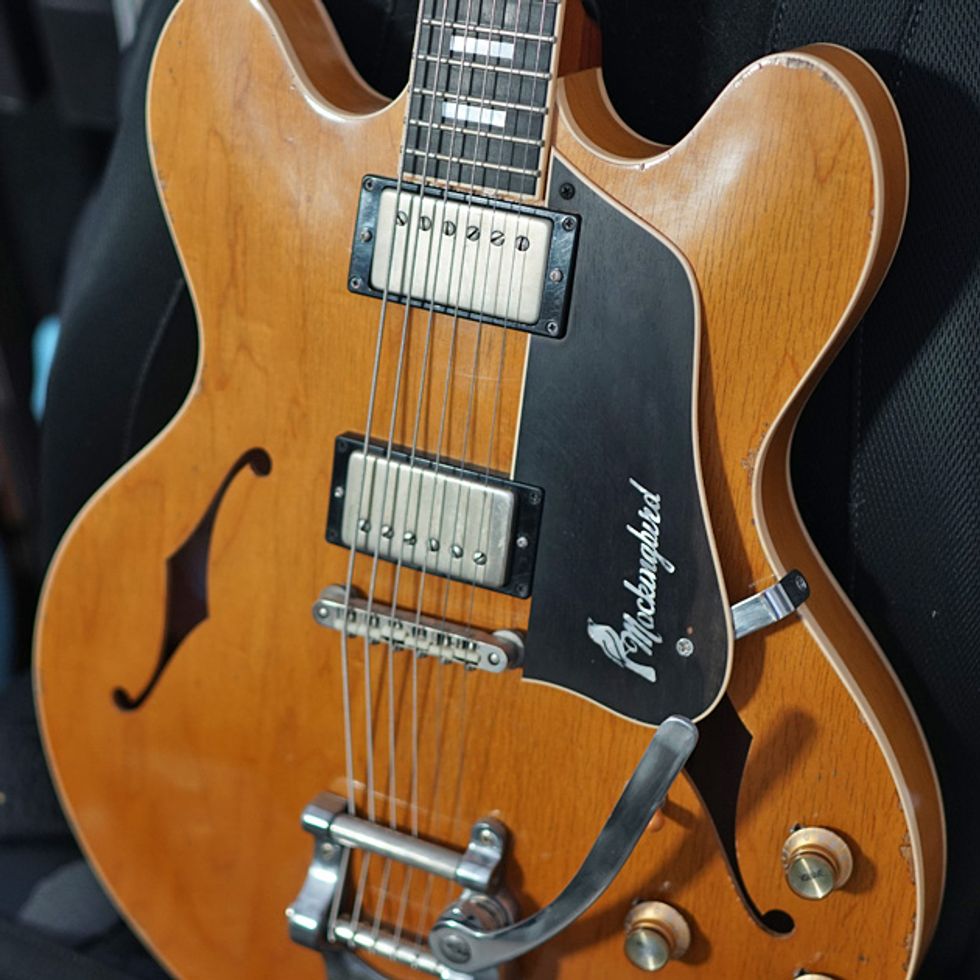
If touring were a thing right now, Posen would take this Josh Williams Guitars’ Mockingbird on the road for open-C duties. (Again, also using a capo to unlock more doors while still traveling lean.) It speaks with a set of Ron Ellis PAFs that sit in the 7-8k range.
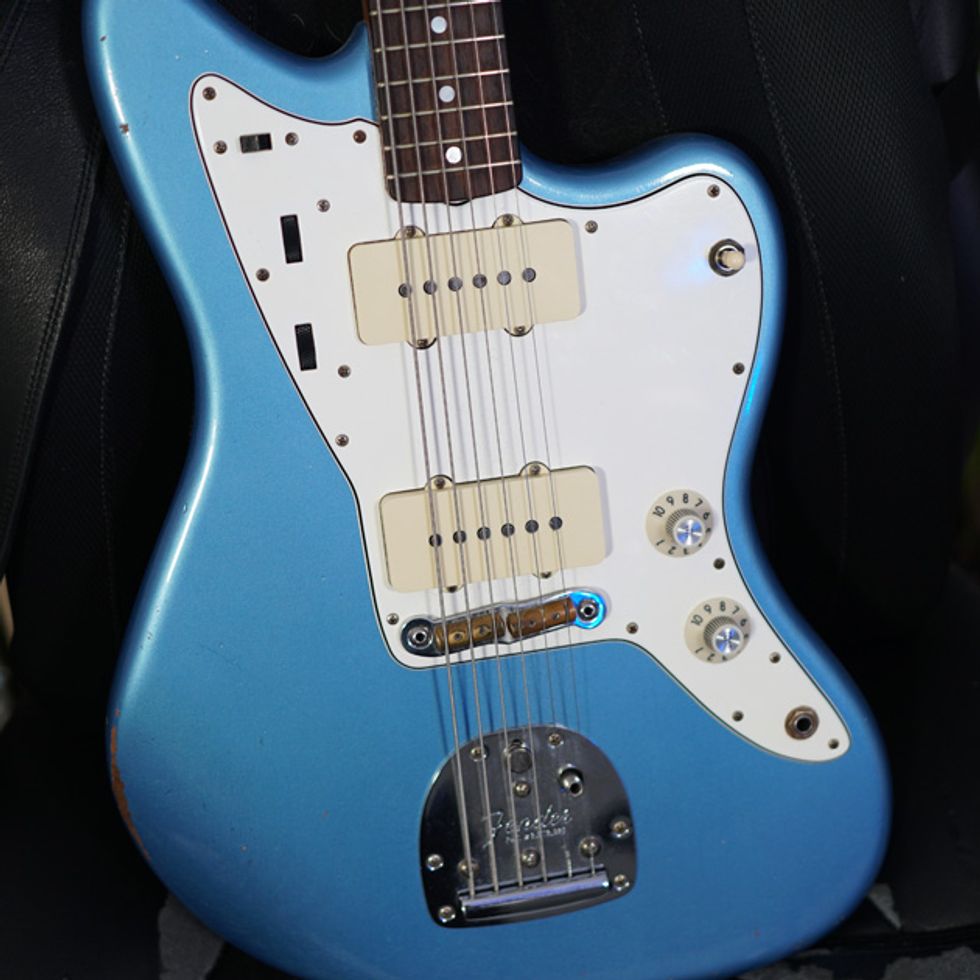
Another one that saw recording time for Headway is the above Fender Custom Shop Masterbuilt '60s Jazzmaster (by Carlos Lopez). Making it work better for him, he had the treble-bleed circuit removed, so when the guitar’s volume is lowered, it actually gets warmer.
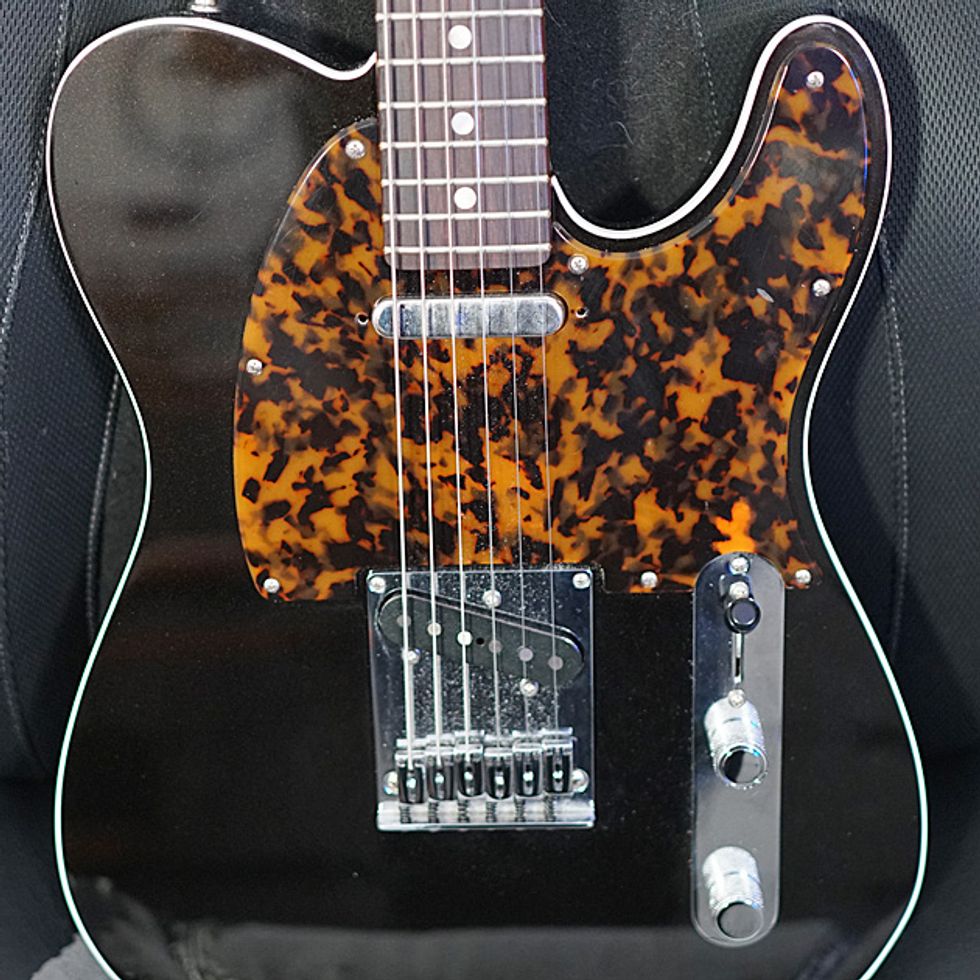
Here is Posen’s Fender Ultra Telecaster that was recently upgraded with a sharp faux-tortoise-shell pickguard constructed by Chris Moffitt. (He’s a Northern Ireland-based luthier who works under the name Kithara Guitars.) Another mod he did to this tele was swapping out the stock Ultra Noiseless pickups for a vintage-voiced, ’50s-era, T-style set from Ron Ellis. For pandemic projects he’s had this one set in standard tuning and outfitted with Ernie Ball Slinkys (.012s).
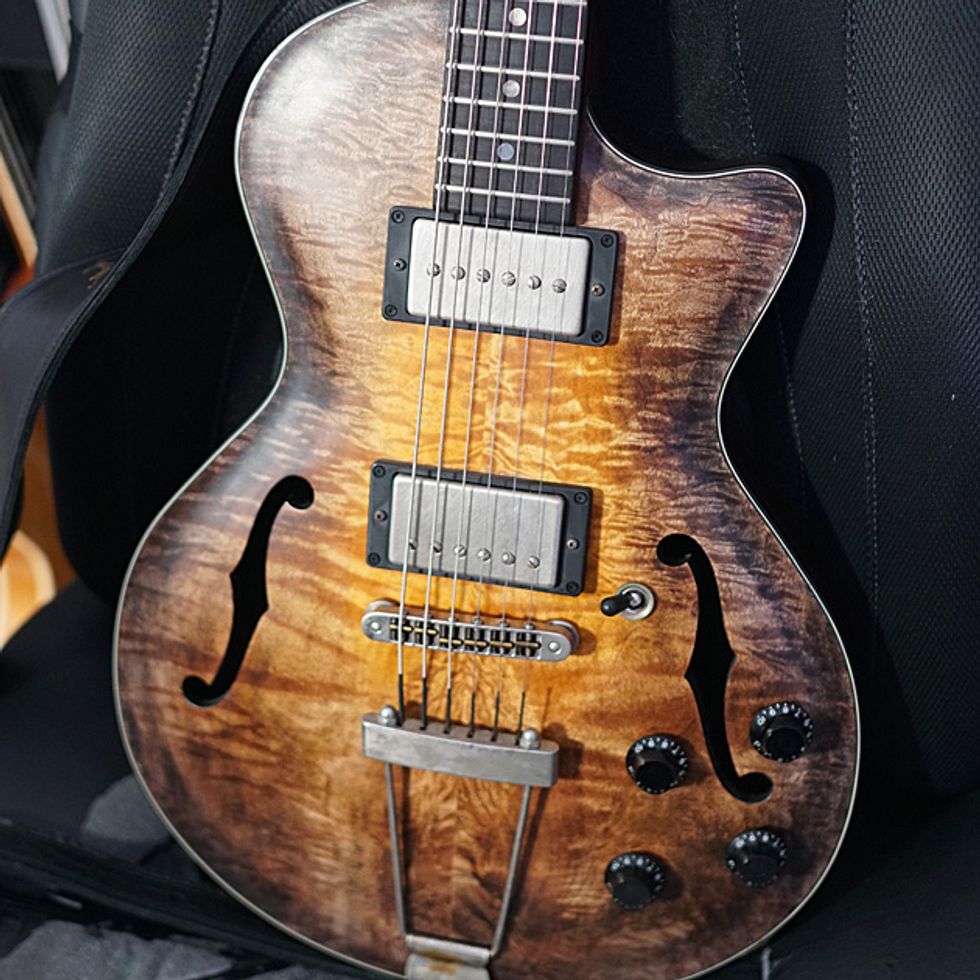
Above is a Wide Sky Guitars P125 Cutaway model built by luthier Patch Rubin. The New Mexico-based shop focuses on classic singlecut, LP-style electrics and golden-age acoustics. The P125 features a chambered sapele body with a carved maple top, mahogany neck with a bound ebony fretboard, and it came loaded with a mixed set of Curtis Novak pickups—a P-90 in the neck and a PAF in the bridge.
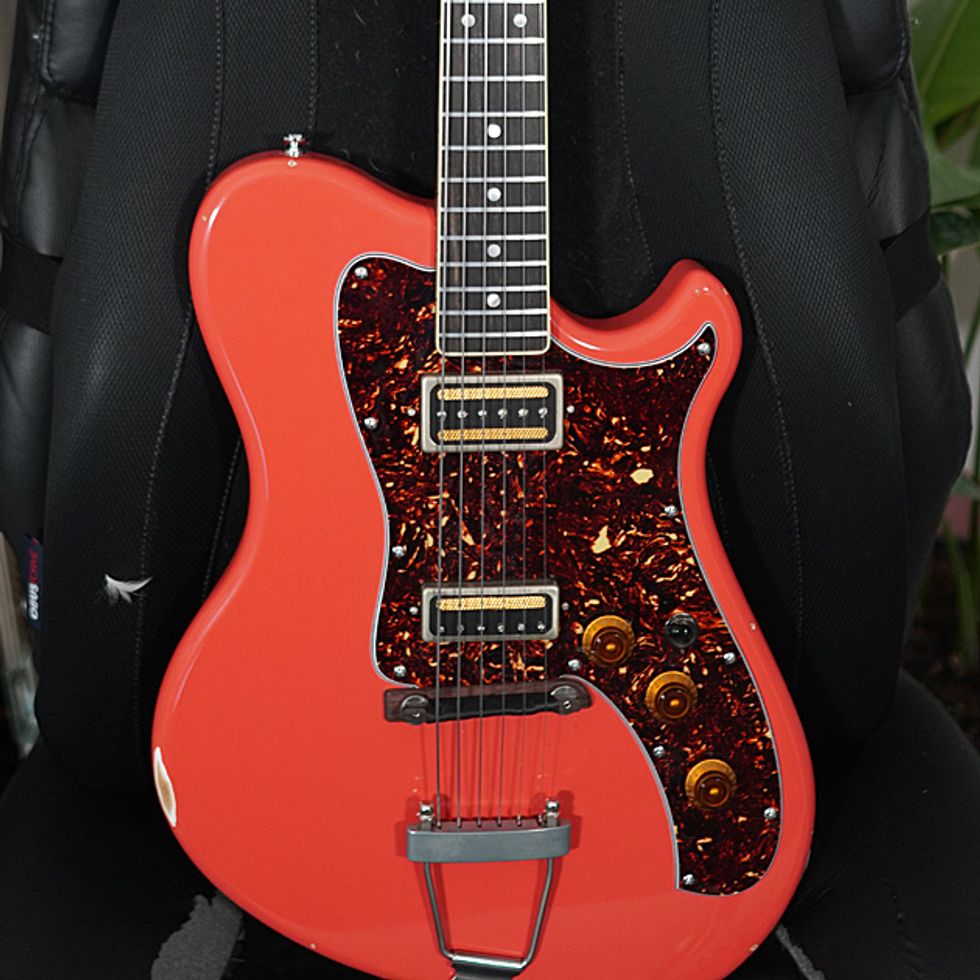
Easily the wonkiest guitar in Posen’s collection is this custom ride created by Dahlberg Intruments. The body is based on their standard Crusader model, but the rest is unique to Ariel. Its fiesta red body is made from swamp ash, it has a walnut neck, a fretless ebony fretboard with aluminum fret markers, custom Lücking gold-foil pickups, and a rubber-coated floating wooden bridge.
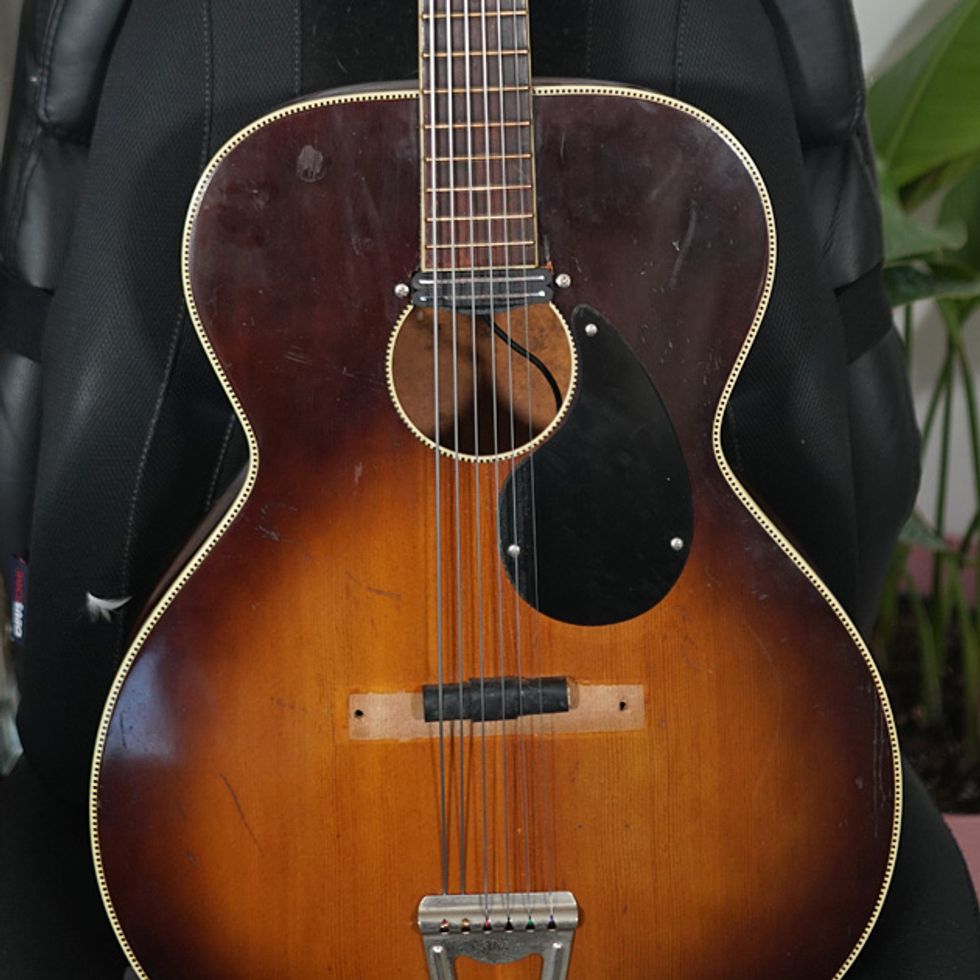
On the surface, this looks like a junky ’50s Kay. And while you’re not entirely wrong, the guitar is quite playable and has a character all its own thanks to being fully refurbished (completely with a Seymour Duncan Hot Rails in the soundhole) by luthier Reuben Cox of L.A.’s Old Style Guitar Shop.
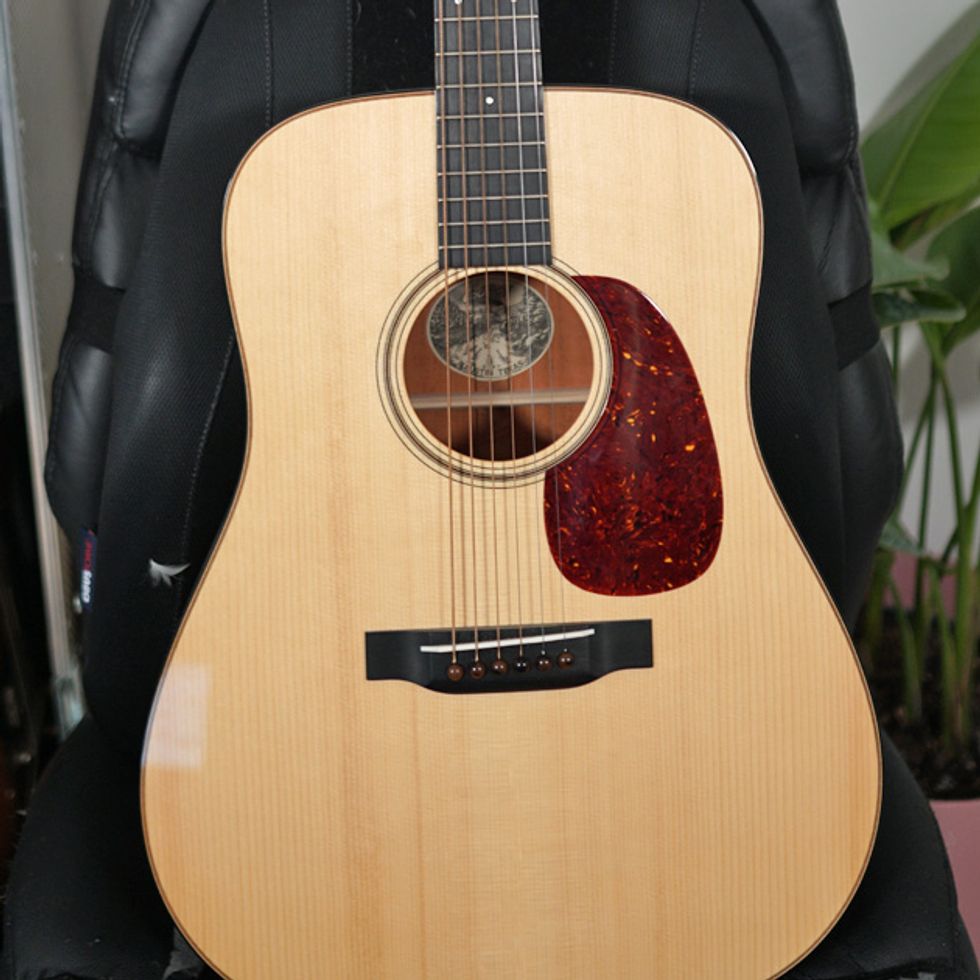
Posen’s favorite style of acoustic is a dreadnought. His prized Martin D-28 rests back home in Winnipeg, but during quarantine he’s been bonding with this Collings D1 T that’s seen work during recent recording projects.
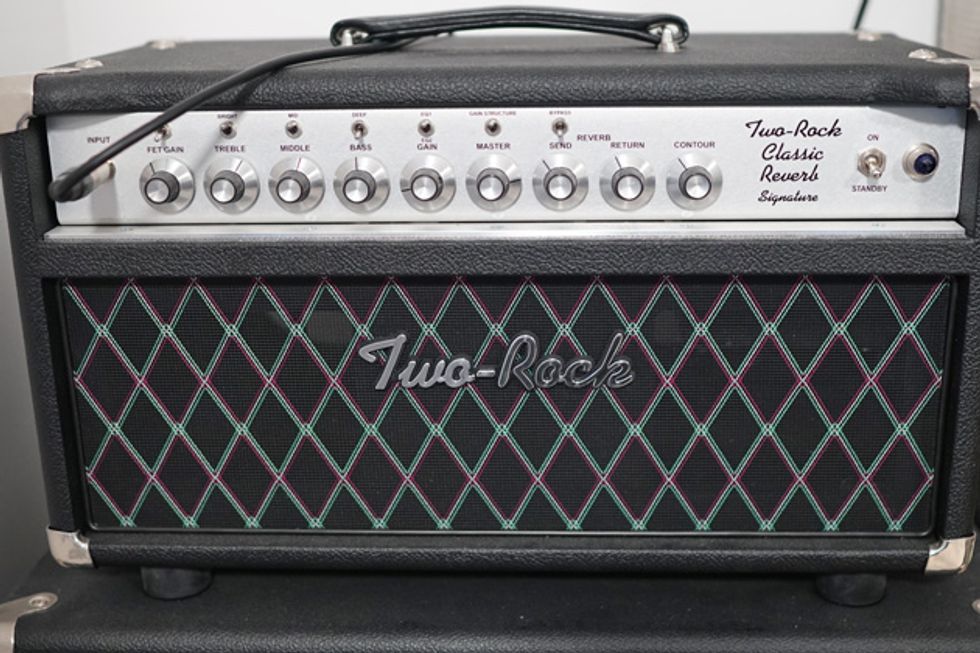
If you’ve caught Ariel onstage, you’ve probably seen him plug into a Two-Rock. For the recording purposes of this Rundown, he fired up his Classic Reverb and routed it into the Universal Audio Ox Load Box.
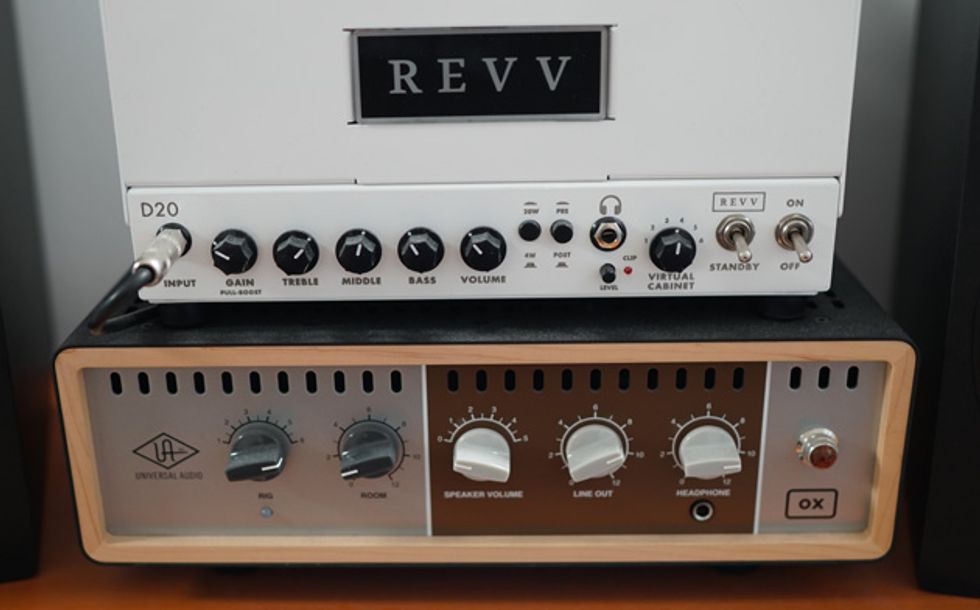
Another tone machine used during the pandemic is Posen’s Revv D20 (sitting on top of the aforementioned UA Ox Box).
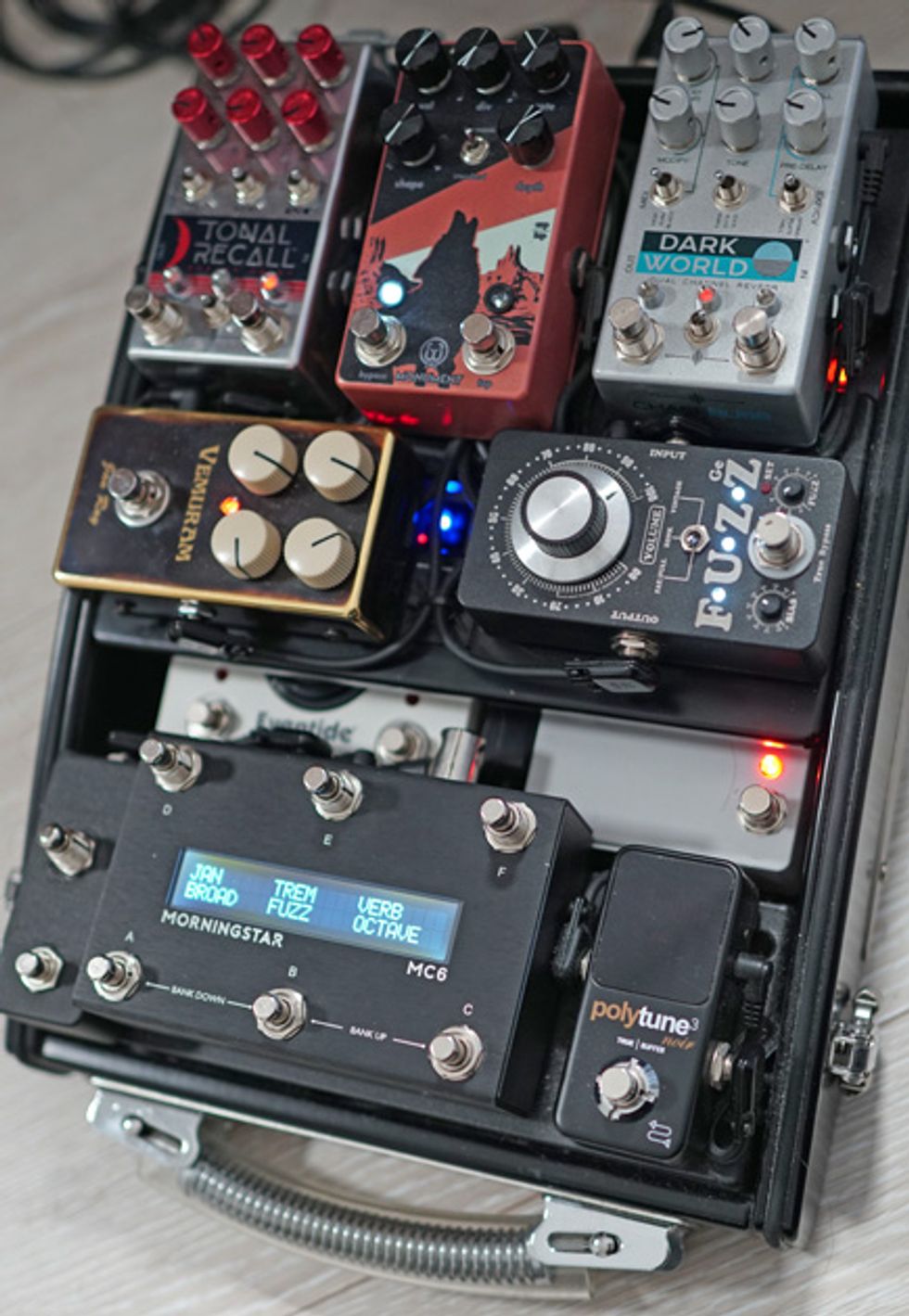
Posen toured with this setup for over a year before everything shut down. In the Rundown he mentions that he uses it quite a bit for sessions, proving to be flexible while compacted into a travel-friendly package.
Starting at the top left, you have a Chase Bliss Tonal Recall, Walrus Audio Monument, and a Chase Bliss Dark World. Down below that he has a Vemuram Jan Ray overdrive and a KingTone Germanium miniFUZZ. And the bottom row he has a Morningstar FX MC6 MIDI Controller and a TC Electronic PolyTune3 Mini Noir.
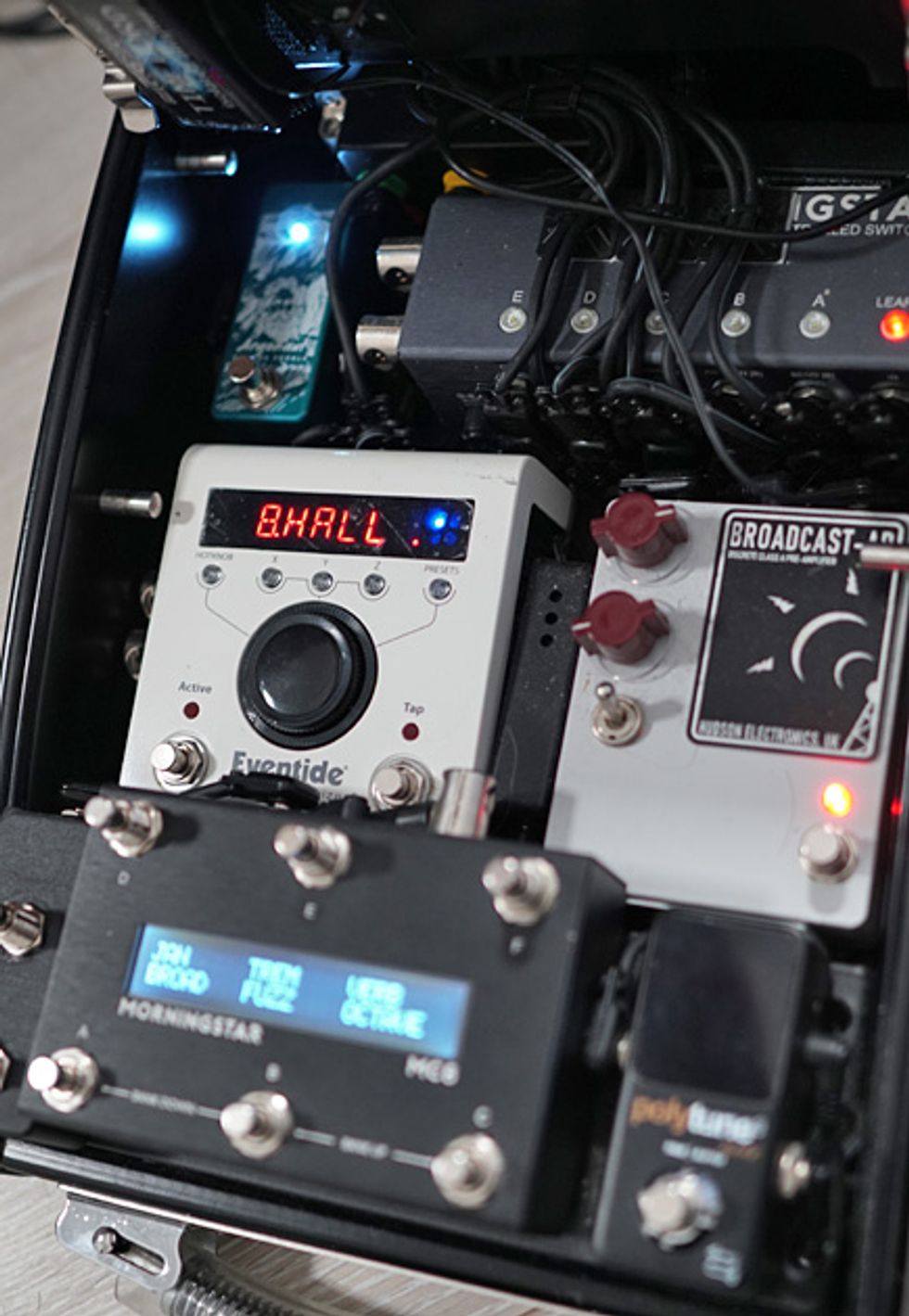
But wait … there’s more!! Underneath the top two rows sits a trio of stomps—a Mythos Pedals’ Argonaut Mini Octave Up, Eventide H9, and Ariel’s signature Hudson Electronics Broadcast AP that he leaves on all the time (cleaning up with his guitar’s volume knob).
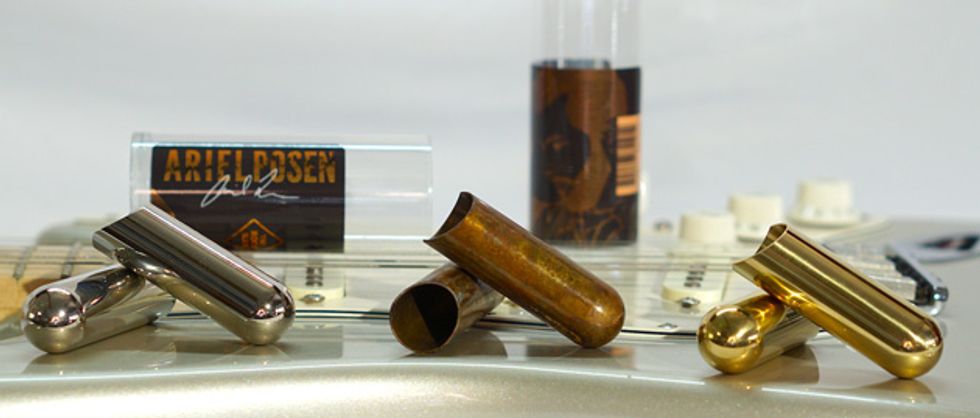
Another big piece of the tonal pie for Posen is using his signature brass Rock Slide. He worked alongside Rock Slide’s Danny Songhurst to develop his namesake slide that features a round-tip end that helps Posen avoid dead spots or unwanted scratching. While he prefers polished brash, you can see about that it’s also available in a nickel-plated finish and an aged brass.




![Rig Rundown: Russian Circles’ Mike Sullivan [2025]](https://www.premierguitar.com/media-library/youtube.jpg?id=62303631&width=1245&height=700&quality=70&coordinates=0%2C0%2C0%2C0)
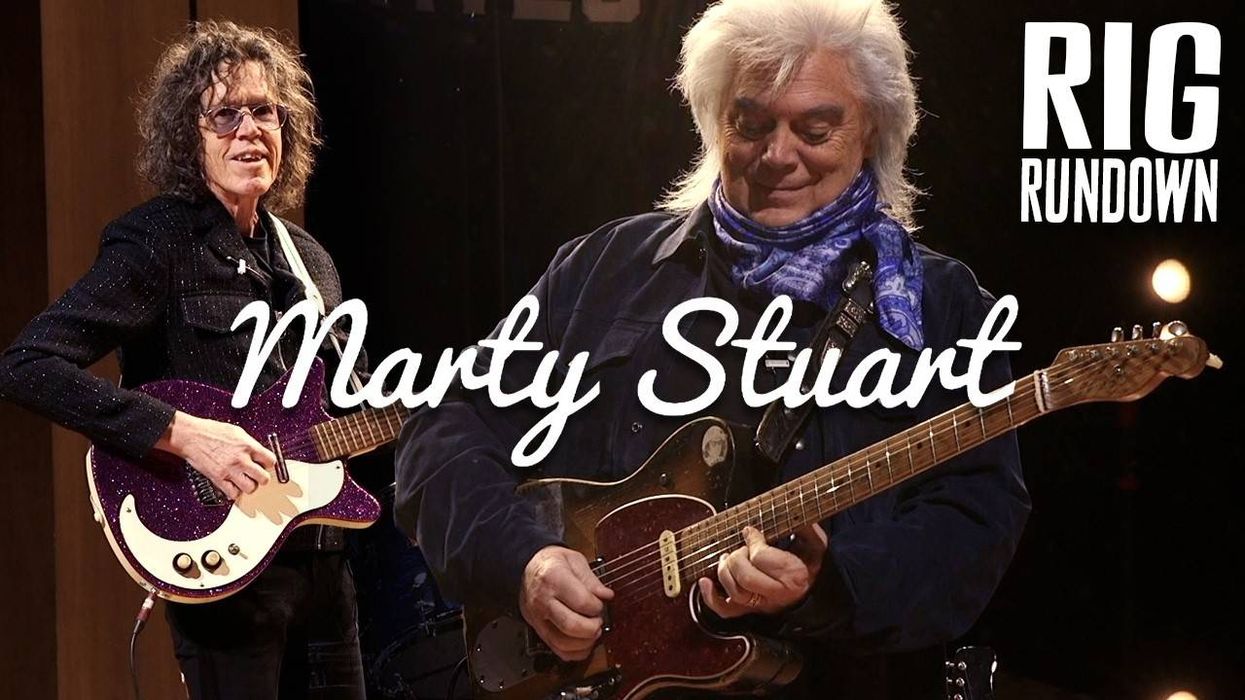

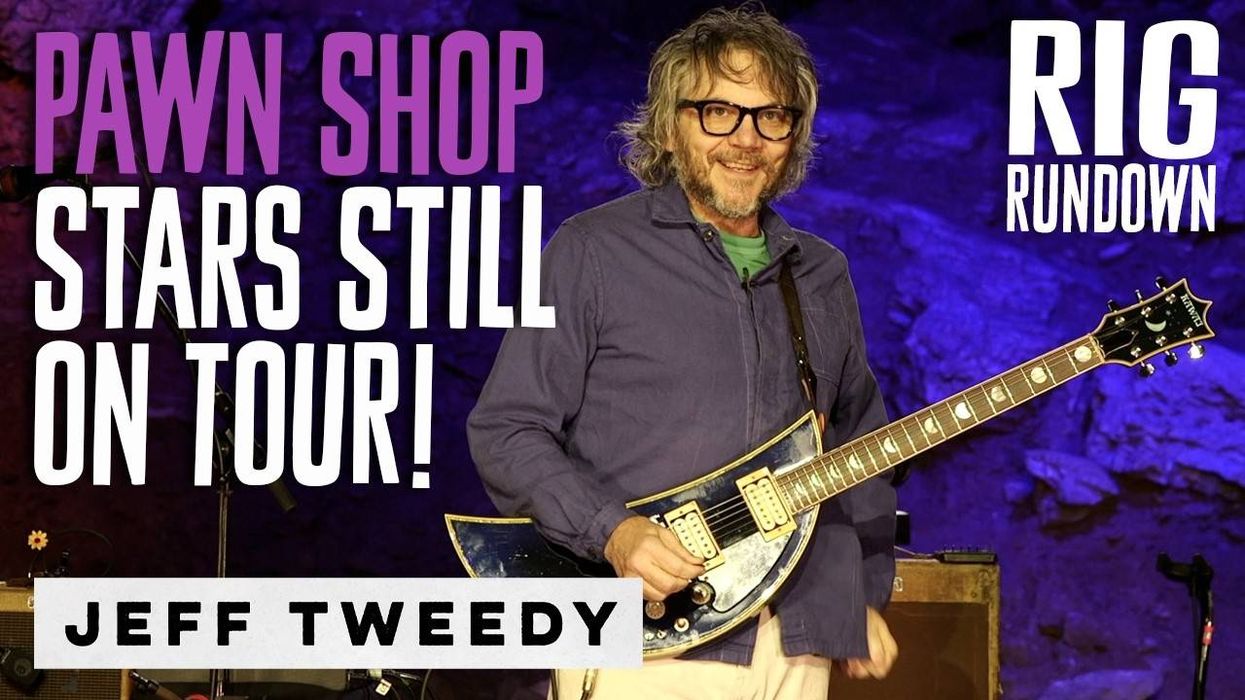

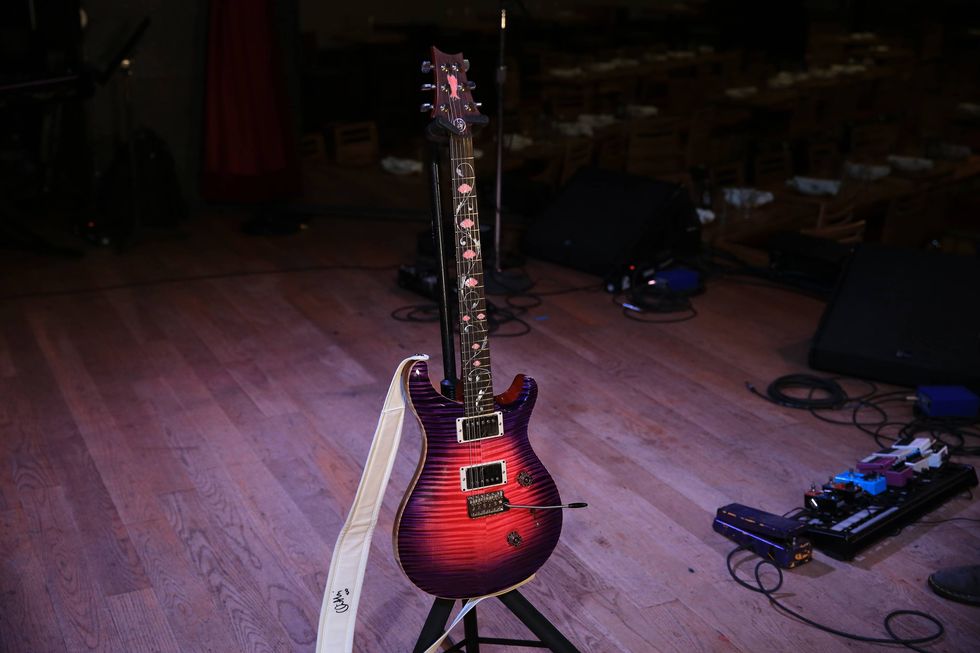
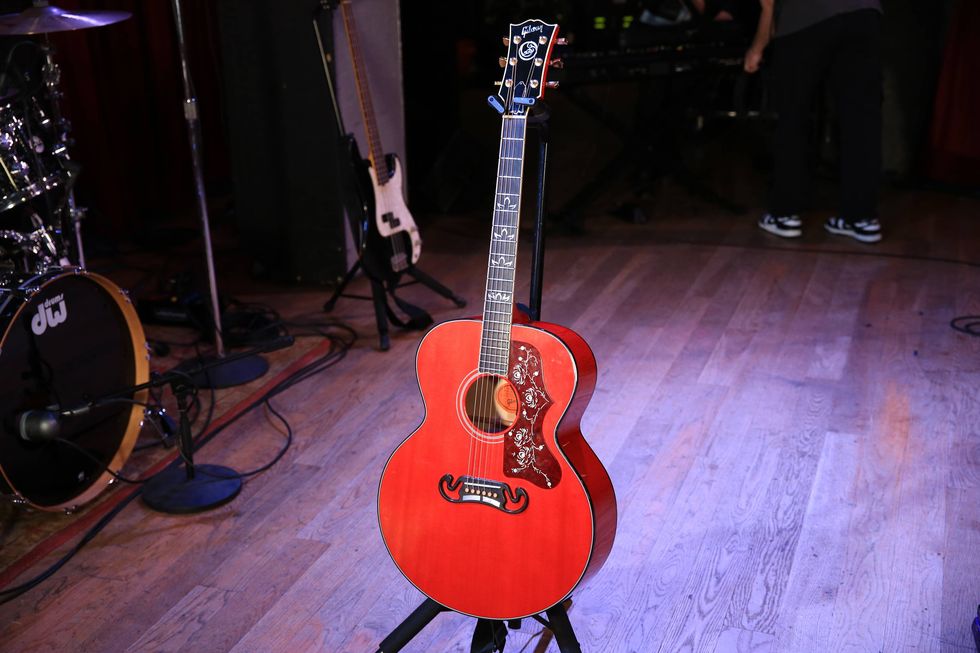
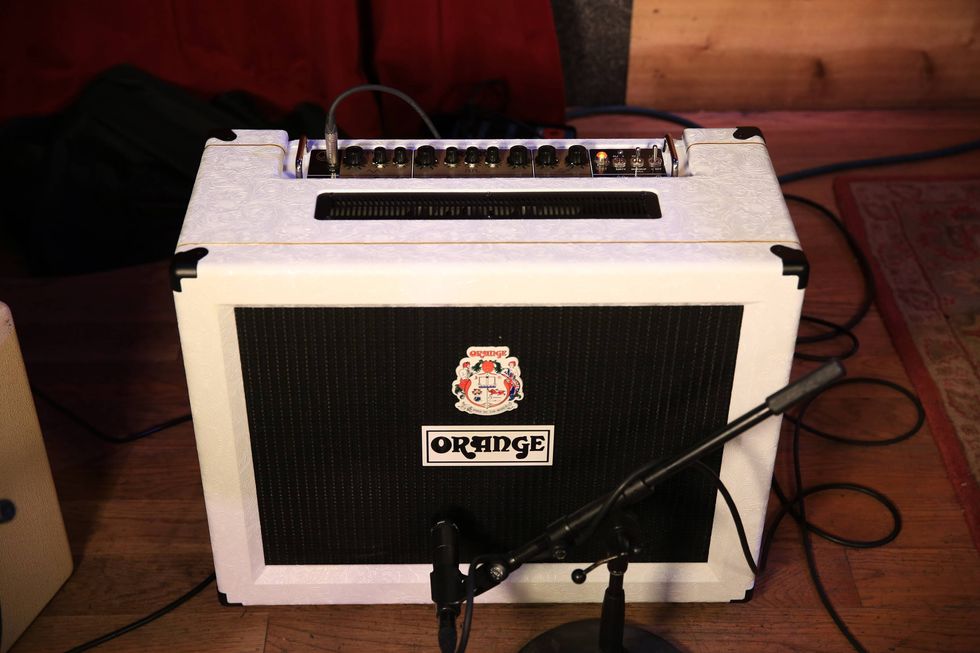
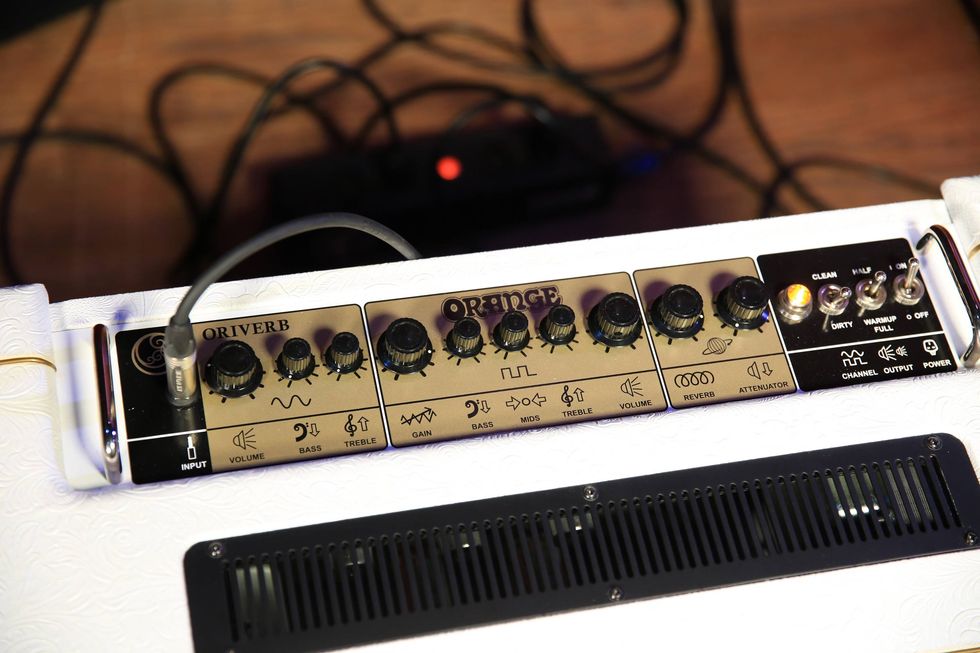
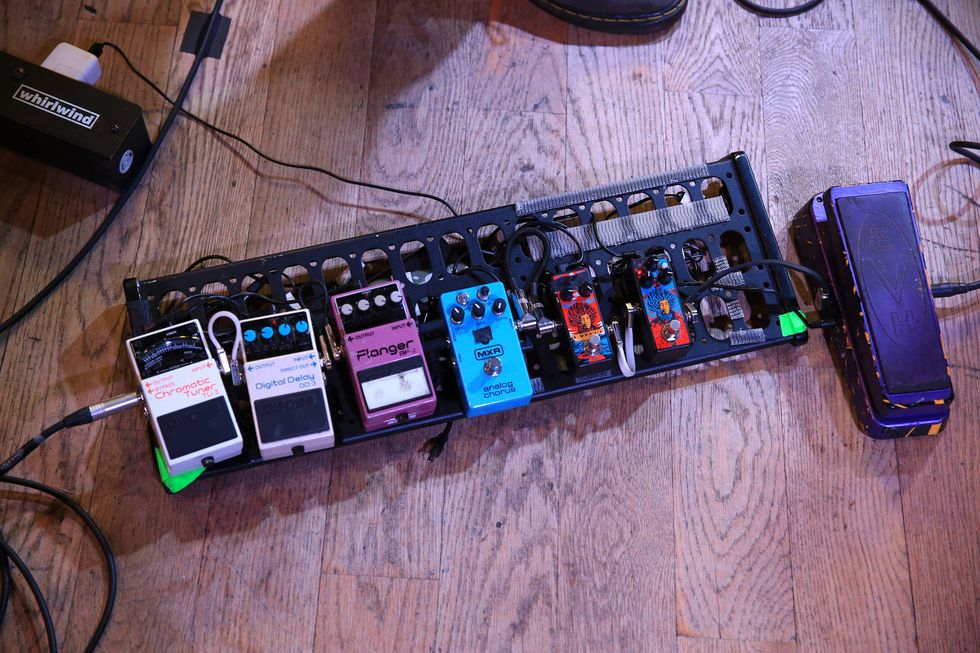


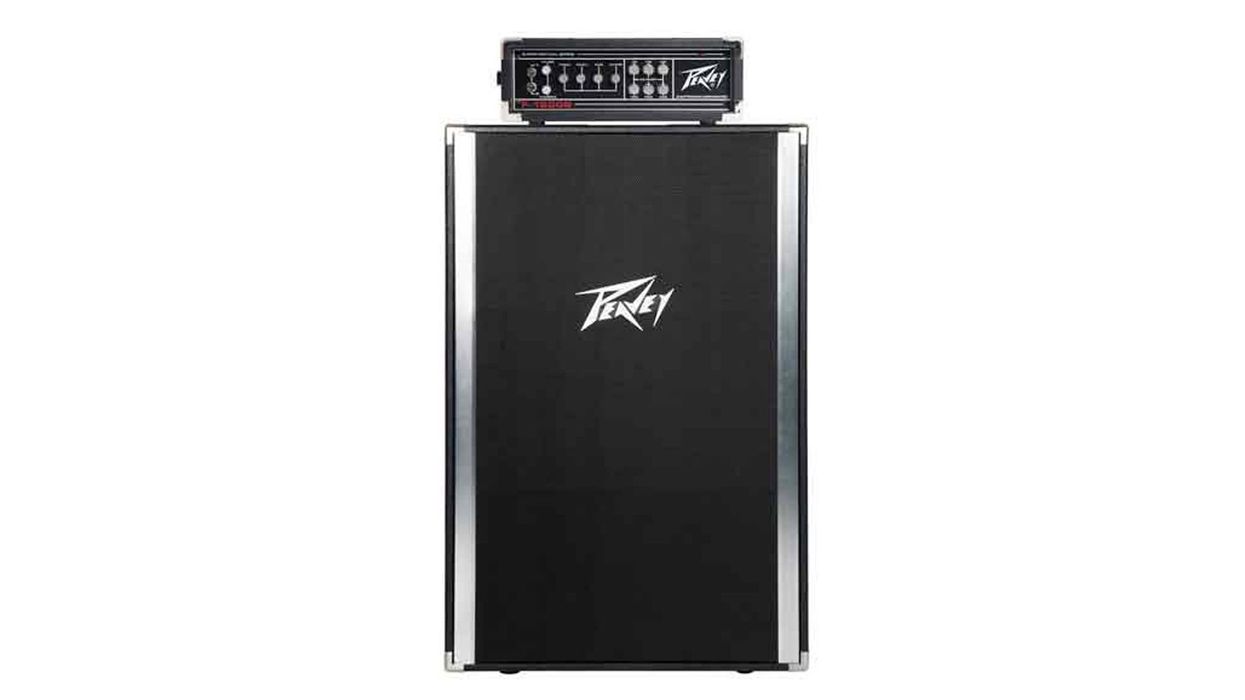

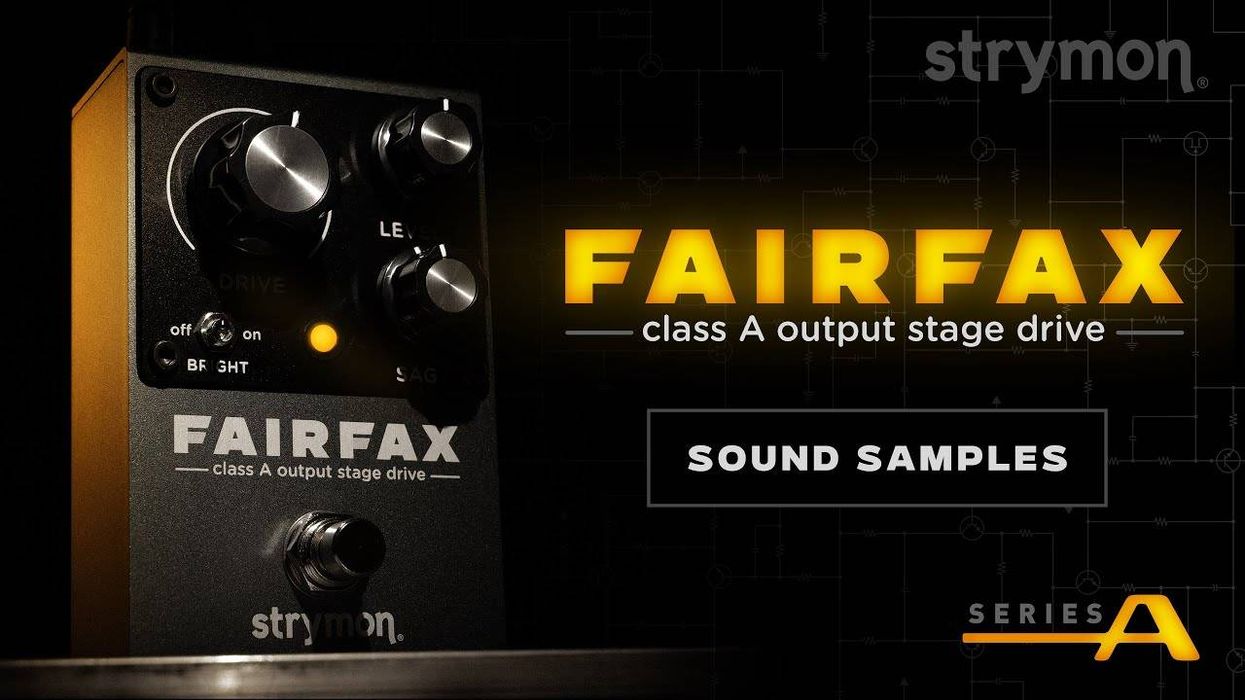
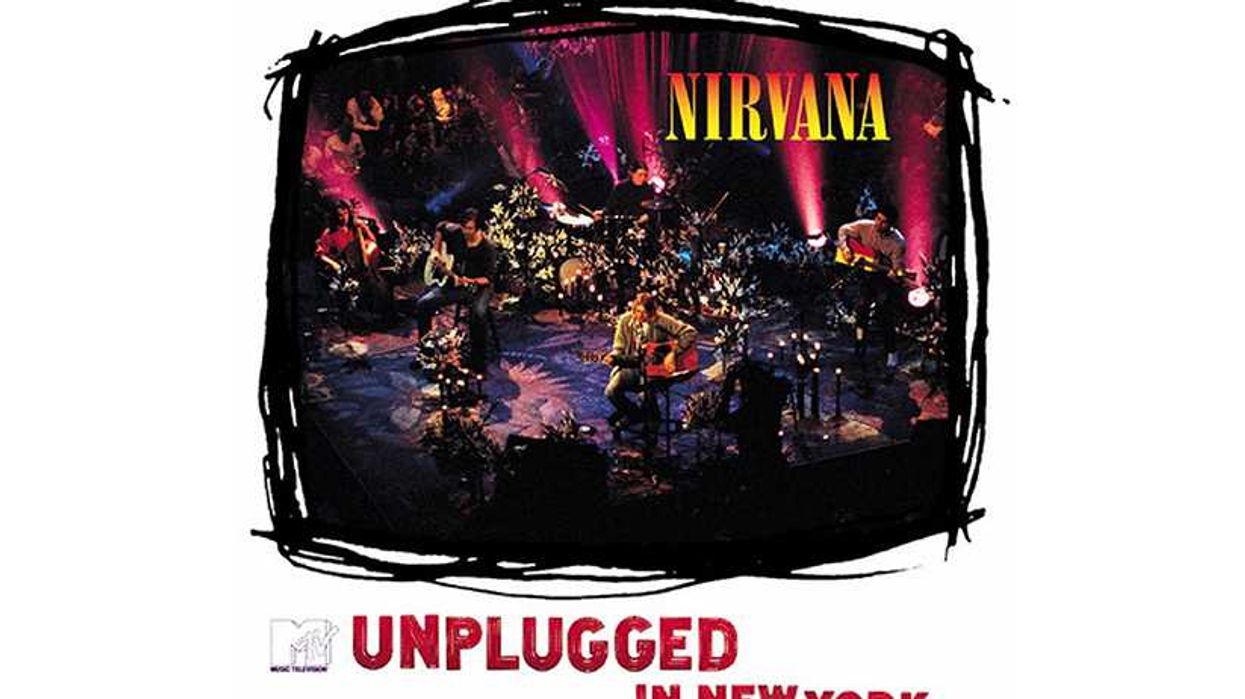
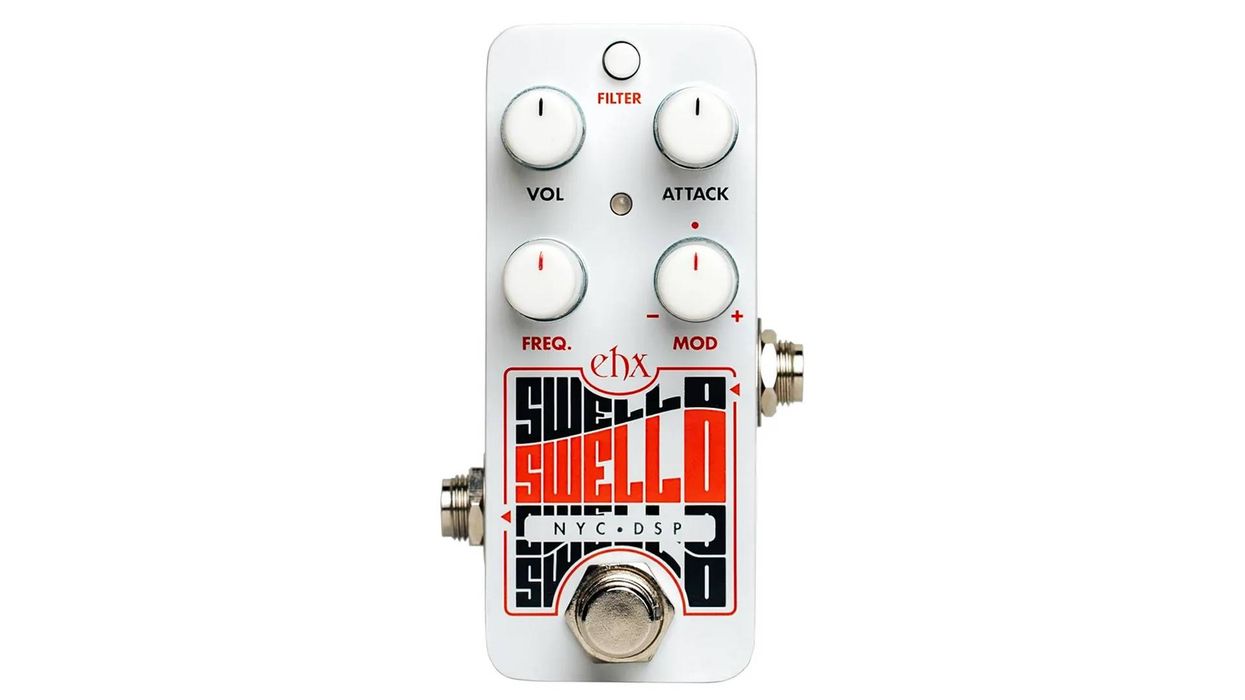
![Rig Rundown: AFI [2025]](https://www.premierguitar.com/media-library/youtube.jpg?id=62064741&width=1245&height=700&quality=70&coordinates=0%2C0%2C0%2C0)












 Shop Scott's Rig
Shop Scott's Rig







 Zach loves his Sovtek Mig 60 head, which he plays through a cab he built himself at a pipe-organ shop in Denver. Every glue joint is lined with thin leather for maximum air tightness, and it’s stocked with Celestion G12M Greenback speakers.
Zach loves his Sovtek Mig 60 head, which he plays through a cab he built himself at a pipe-organ shop in Denver. Every glue joint is lined with thin leather for maximum air tightness, and it’s stocked with Celestion G12M Greenback speakers.







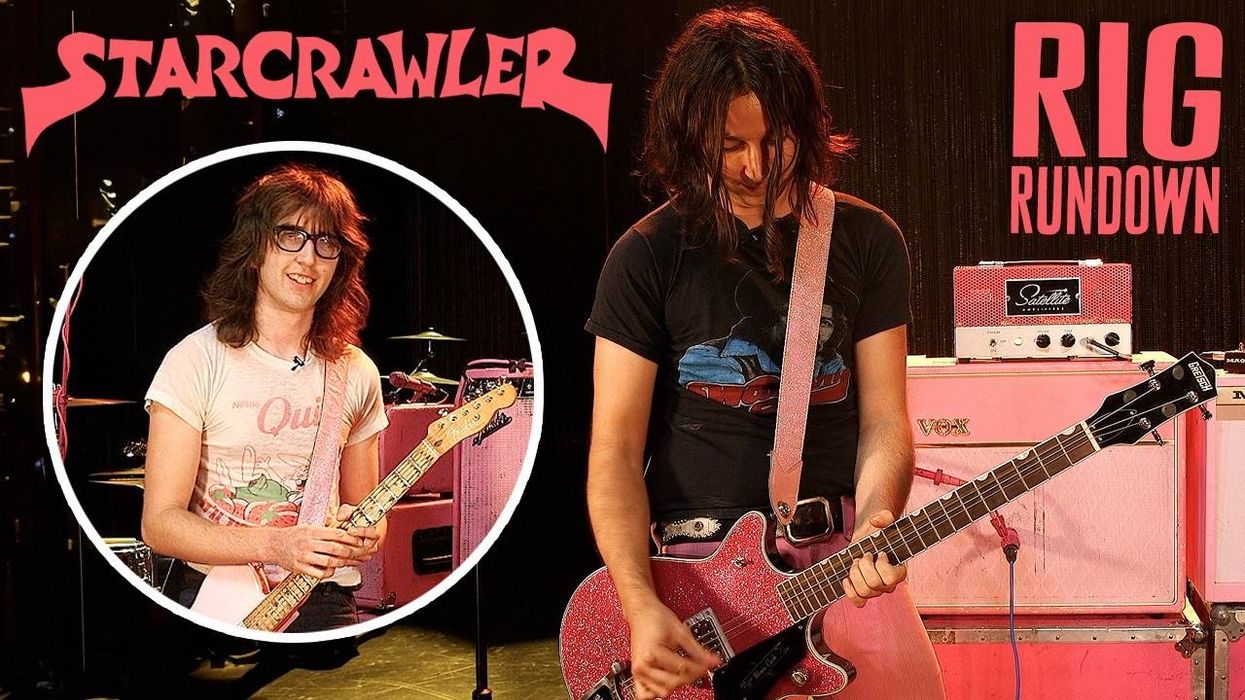
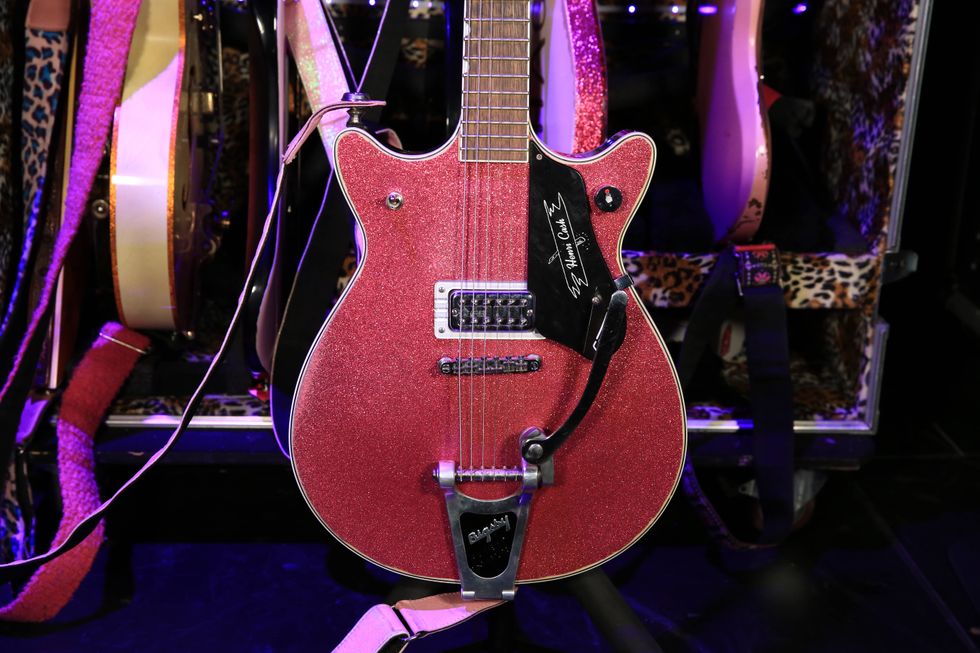
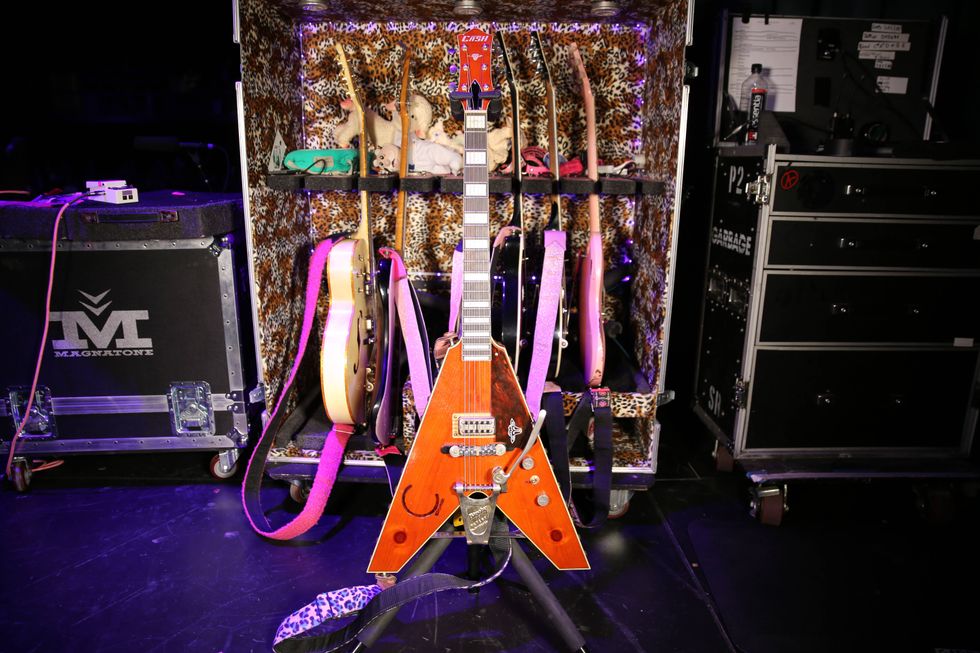
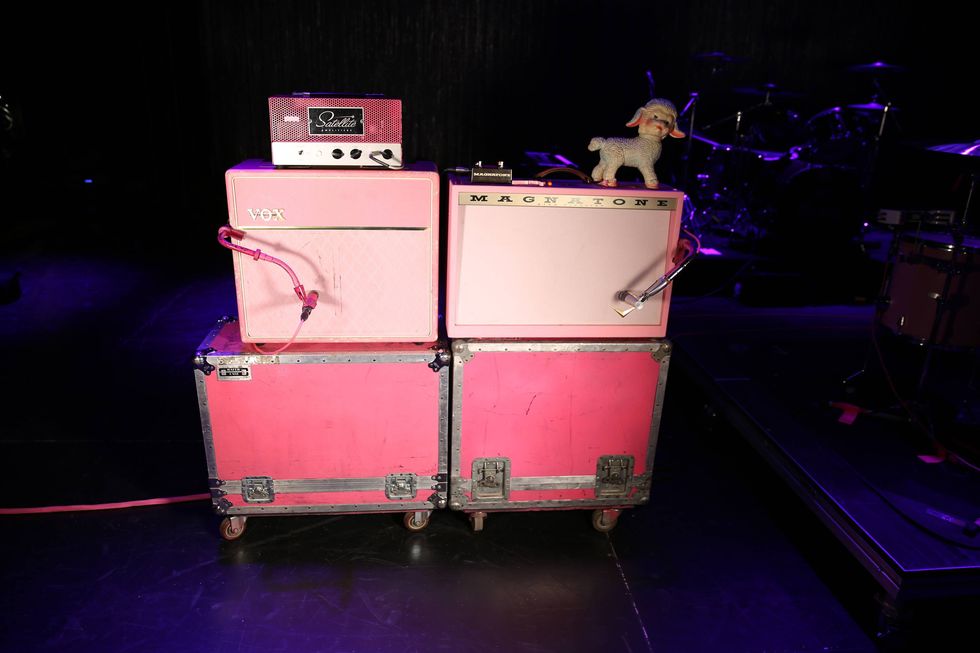
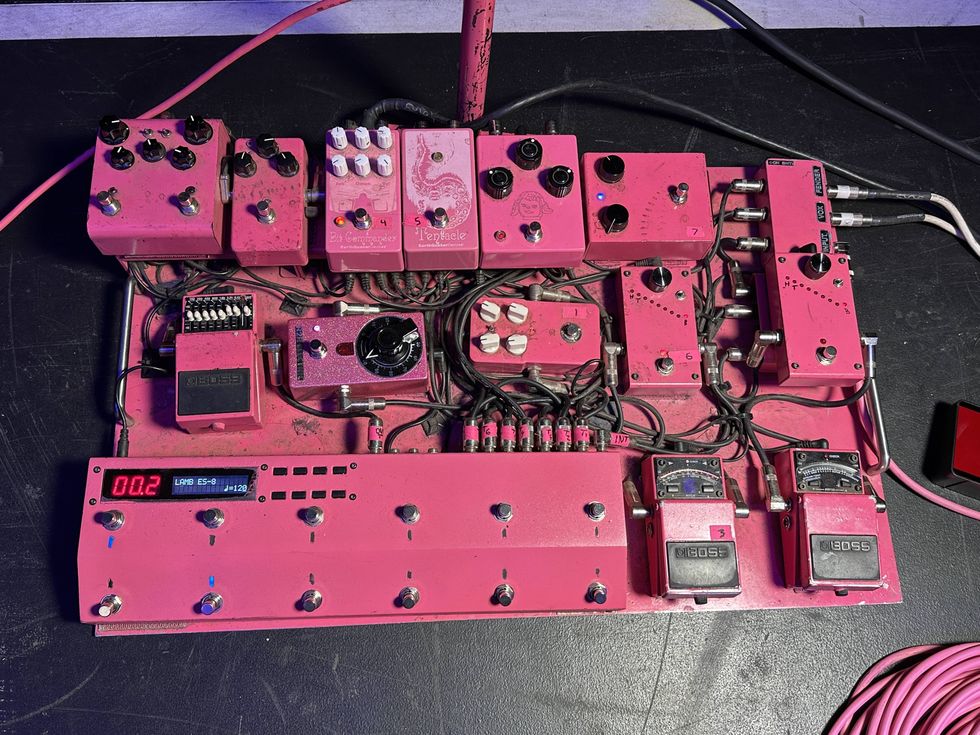
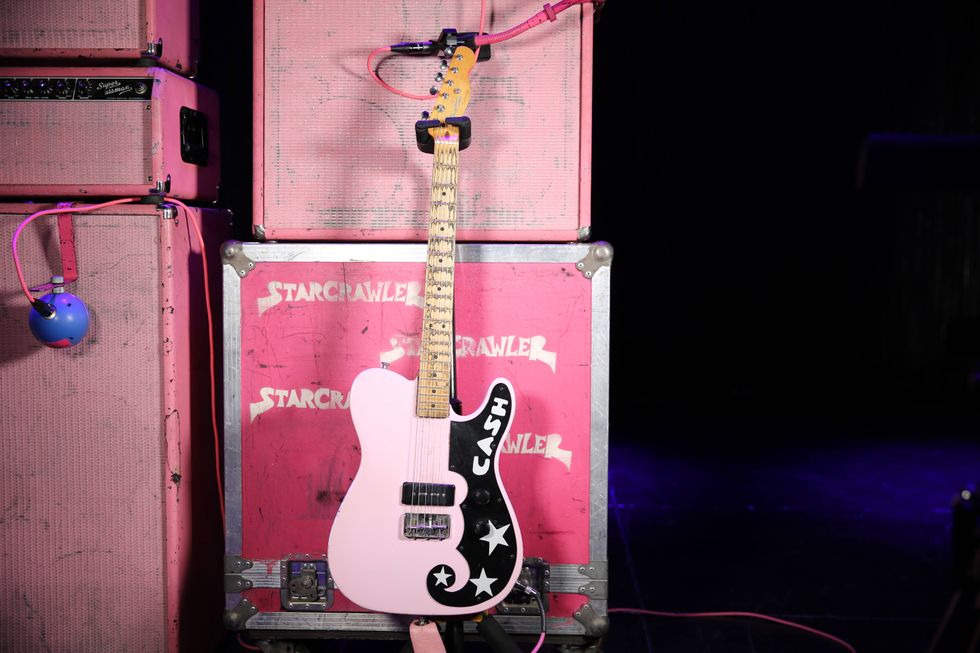
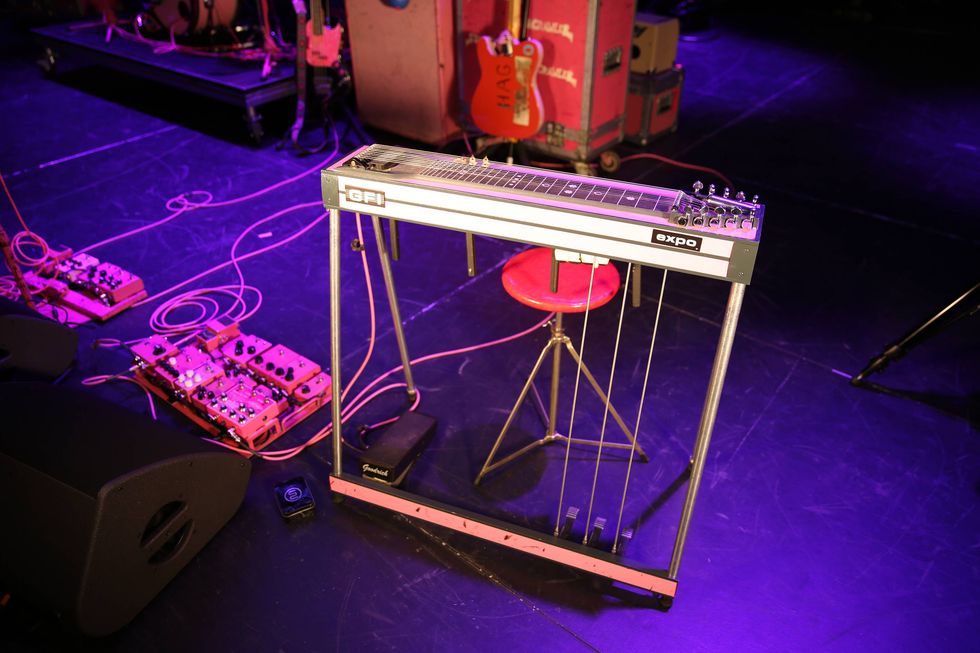
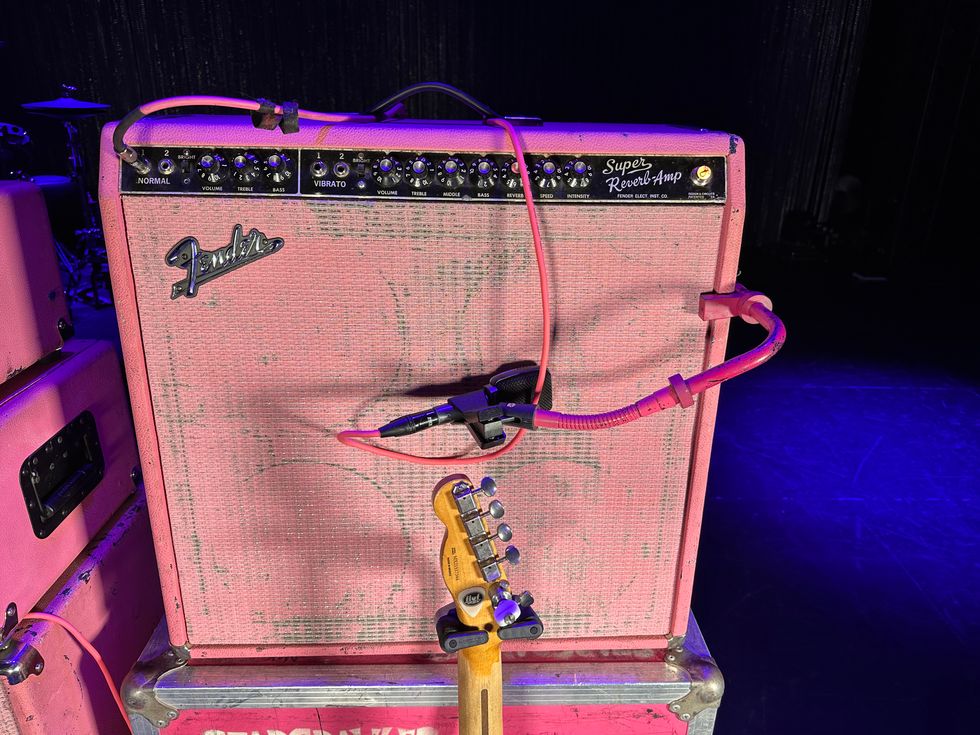
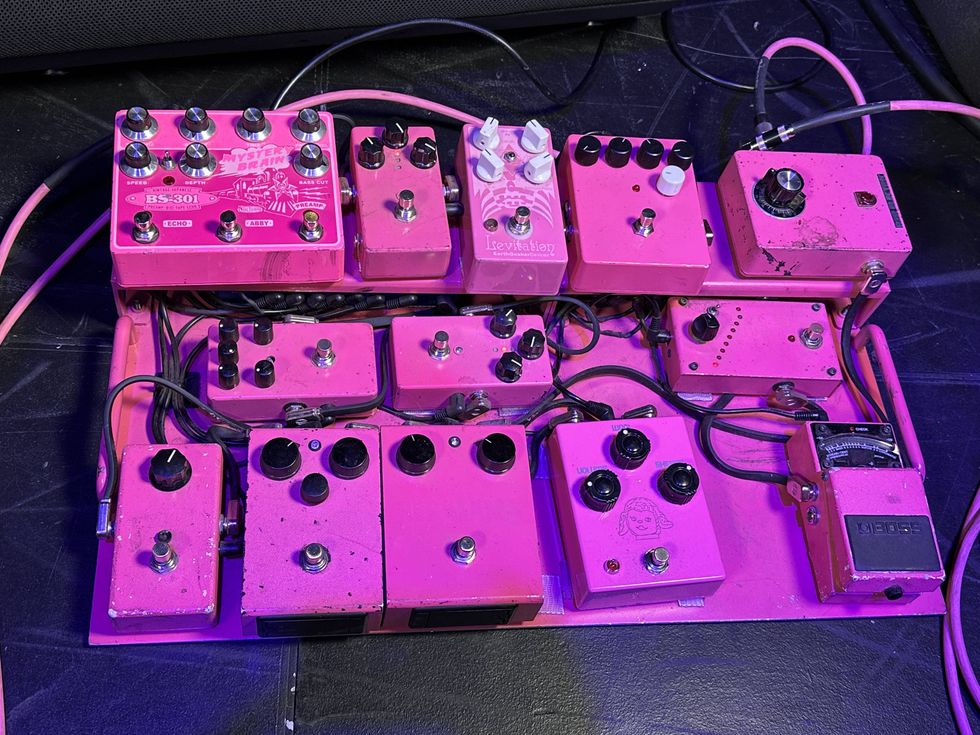

![Devon Eisenbarger [Katy Perry] Rig Rundown](https://www.premierguitar.com/media-library/youtube.jpg?id=61774583&width=1245&height=700&quality=70&coordinates=0%2C0%2C0%2C0)
